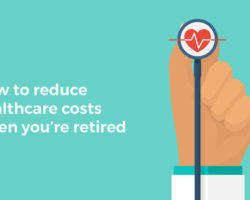Everybody needs auto insurance. It’s required by the law. But not everyone can get the insurance they want. Especially if you’re unlucky, if your driving skills are lacking or if you’re just an irresponsible driver, then your chances of finding a good policy at a good price are slim.
Still, slim is better than none. And the good news is that there are companies out there that will work with drivers with bad records. They are called nonstandard insurance companies, precisely because they make deals with nonstandard drivers.
What is a nonstandard driver?
A nonstandard driver is someone with a bad driving record or with anything else that qualifies him for high risk auto insurance. Those labeled this way usually have at least one of the following:
- A DUI conviction;
- A poor credit history;
- A DWI conviction;
- An exotic or high-value vehicle;
- Very little driving experience;
- Multiple traffic violations or accidents;
- Lapsed coverage;
- Filed too many insurance claims.
Elderly drivers, immigrants with no driving record in the U.S., or those looking only for the minimum car insurance coverage can also be considered high risk.
Nonstandard vs. Standard
Standard car insurance costs less than nonstandard and is easier to qualify for. A driver who is eligible for standard car insurance has a clean driving record, no criminal background, and good credit.
What options does a nonstandard driver have?
Because nonstandard auto insurance policies have a higher rate than standard ones, it’s a good idea to shop around before choosing an auto insurance provider. With a little luck, you can get the best for your money. What’s important is that there are quite a few options out there.
You might actually be surprised to find out how many major carriers will insure nonstandard drivers. Some of them, like Progressive, have started out as high-risk insurers. Others operate subsidiaries for nonstandard drivers. And others have separately branded subsidiaries specialized for the nonstandard market.
Here are some examples of large and small companies that offer insurance to nonstandard drivers:
- Progressive
- Geico Casualty Co.
- The General
- Access
- Alliance United
- Titan Auto Insurance
- Victoria Auto Insurance
- Dairyland
- Direct General
- Gainsco
- Infinity
- Bristol West
- Safe Auto
- United Automobile
But don’t forget to check out multiple sources and do your research before you choose a company.







